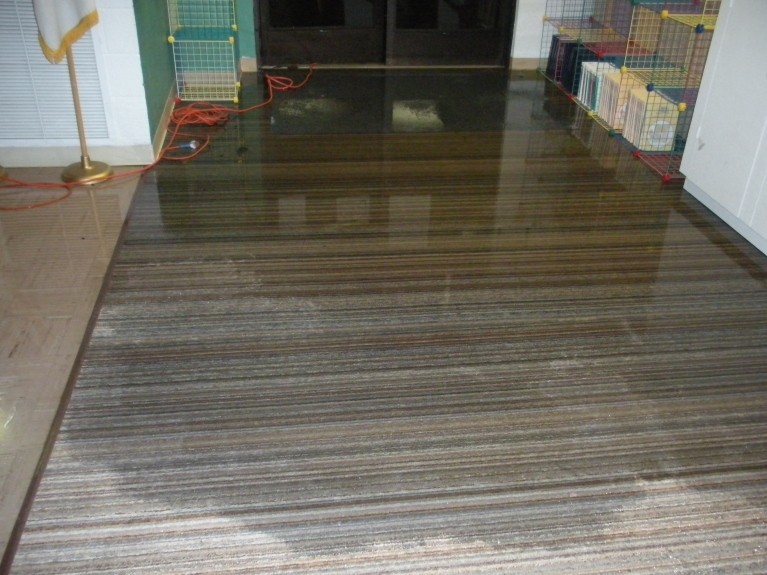Everyone will have their own unique opinion on the subject of Water Heater Repair.

Whether it is located in the cellar or a different area, broken water heaters can create anxiety. A conventional unit holds 80 gallons, so an over night leak will lead to a flood. This leads to major building damage with soaked walls and floorings. Besides, having no warm water supply is also bothersome. If you are taking care of these concerns, keep in mind of the following:
Turn Off Source Of Power
Prior to calling the plumber, shut off a gas water heating system by transforming the temperature dial. This will avoid electrocution, particularly if there is a leakage as water is a conductor. Usually, the home heating aspect shuts off when the water strikes a specific temperature level.
Cut Off the Cold Water Supply
Cut off the containers faucet water supply from the resource. This goes from your main water line right into the tank. When your container remains in good condition, the cold water stops filling up when the tank is full. Because it is leaking, the water will proceed to flow. Close the valve discovered on top of the heater. Rotate this clockwise to shut it off. If you can not find it or reach it, you must turn off that primary water supply line outside your residential property.
Call the Plumber
After doing the very first two safety and security actions, you need to call your plumber to come right away to take care of a fractured water heating system. There are usually signs that your aging water heating unit has debris build-up in the inside.
- Rusty water originating from the warm water faucet
- Unusual noises from within that show sedimentation
- Dripping links
- Pooled water under the container because of small pinholes
- Instead, as soon as you identify these indications, have actually a specialist come to examine your water heating system give thanks to. Usually, water heating units have a life expectancy of about 8 to 12 years.
Tidy up Building
After calling the plumber, record damage by keeping in mind and also images so you can assert your house owner's insurance. From there, start the instant clean-up. Take out any crucial valuables to stop further soaking. Then, get rid of any type of standing water to stop mold as well as mold growth. If you have a submersible water pump, use that to drain pipes the water. Or else, the conventional bucket method will certainly likewise work. Attempt to wipe out whatever, including walls and also walls. If you have an electric follower and dehumidifier, keep them going to keep air flowing. This will certainly assist prevent mold and mildew growth.
Keep in mind, if you observe any type of problems with your water heater, call the pros right away. You can not take this issue gently because a faulty thermostat can raise water temperature to a hazardously high degree, leading to unintended burns.
Whether it is located in the cellar or a separate room, damaged water heating units can trigger tension. Before calling the plumber, shut off a gas water heating unit by transforming the temperature dial. After doing the first 2 safety steps, you should call your plumber to come right away to take care of a burst water heater. If you have a completely submersible water pump, use that to drain the water. Keep in mind, if you notice any kind of concerns with your water heating system, call the pros right away.
5 Signs It’s Time to Replace Your Water Heater
Your Water Heater is too Old
Nothing lasts forever, least of all a water heater. During the course of an average home occupancy, a resident is bound to face that moment where they need to replace a water heater. Trouble is, most homeowners are unaware of when a water heater reaches its expiration date. Not knowing this, however, can lead to major risks when the heater starts acting up due to old age.
How Long Do Water Heaters Last
The majority of water heaters last between eight and ten years. While ten is the age at which heater replacement is generally recommended, the actual need to replace a heater could arise before or after this timeline. Whether or not a heater begins showing symptoms, you should replace it once a decade has passed from its manufacture date.
Rusty Water or Heater Inlet Valve
Even though steel is the strongest material on the face of the earth, it has a weakness: rust. When corrosion takes hold on a steel surface, it slowly spreads and eats through the steel in certain spots. On water pipes and tanks made of steel, rust serves as the warning sign for oncoming leaks.
Trouble is, it’s often hard to tell whether rust is coming from the water heater itself or the pipes that lead to your faucet. In any case, rust is an immediate problem that needs to be rectified for the sanitation of your household.
https://www.davidleroyplumbing.com/blog/5-signs-time-replace-water-heater/

I stumbled upon that review about Maintaining & Draining a Water Heater while scouting around the web. Do you know somebody else who is enthusiastic about the niche? Do not hesitate to share it. Thank you for your time spent reading it.
Click
Comments on “Essential Actions for House Owners When Malfunctioning Water Heaters”